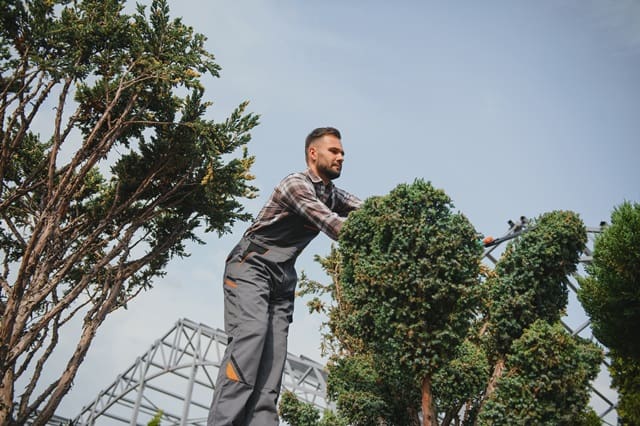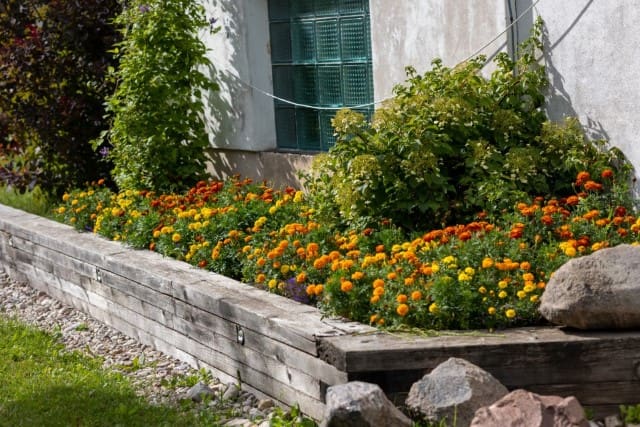Home landscaping plays a crucial role in enhancing curb appeal and increasing property value. A well-maintained yard can create a welcoming atmosphere, making your home more enjoyable and attractive to visitors or potential buyers. However, landscaping requires careful planning to avoid costly mistakes that could diminish your home’s aesthetics. Understanding the best practices and common pitfalls will help you make informed decisions, whether you are refreshing your current yard or starting from scratch. Follow these do’s and don’ts to achieve a beautiful and functional outdoor space.
Do Plan Before You Plant
Planning is essential for a successful landscaping project. Before purchasing plants or materials, assess your yard’s layout, soil type, and climate conditions. Research which plants thrive in your region to ensure long-term success and minimal maintenance. Consider how the landscaping will look throughout the year by selecting a mix of evergreen and seasonal plants. Creating a detailed blueprint will help you visualize the final design and avoid overcrowding or improper plant placement. Proper planning ensures a cohesive and well-balanced landscape that enhances your property’s appeal.
Don’t Overlook Maintenance Needs

A stunning landscape requires regular upkeep to remain attractive and healthy. Many homeowners make the mistake of choosing high-maintenance plants without considering the time and effort needed for care. Avoid planting fast-growing shrubs or invasive species that require constant trimming and may spread uncontrollably. Install an efficient irrigation system to ensure consistent watering without excessive manual labor. Regularly fertilize and mulch to keep plants nourished and protect them from weeds. Understanding the maintenance requirements of your landscaping choices will save time, effort, and money in the long run.
Do Use Native Plants
Incorporating native plants into your landscaping design offers numerous benefits. These plants are well-adapted to the local climate and soil, requiring less water and fertilizer. Native species also attract beneficial pollinators such as bees and butterflies, promoting a healthy ecosystem. Since they have evolved to thrive in the area, they are more resistant to pests and diseases, reducing the need for chemical treatments. Additionally, native plants blend naturally with the surrounding environment, creating a seamless and visually appealing landscape. Choosing native plants ensures sustainability and long-term success for your home’s outdoor space.
Don’t Ignore Property Boundaries and Regulations
Failing to consider property lines and local landscaping regulations can lead to disputes and costly fines. Before starting any project, check with your local government or homeowner’s association for guidelines on landscaping modifications. Avoid planting large trees or shrubs too close to property lines, as their roots and branches may encroach on neighboring properties. Be mindful of underground utilities and obtain necessary permits for major landscaping changes, such as adding retaining walls or fences. Following regulations and respecting property boundaries will prevent legal issues and maintain positive relationships with neighbors.
Do Plan for the Long-Term

Planning for the long-term is essential when designing your home’s landscape to ensure sustainability and efficiency. Consider the mature size of plants before placing them in your yard, as small saplings can grow into large trees that may overshadow other plants or interfere with power lines and structures. Once mature, trees planted to close to your home could post a threat during weather events. Selecting slow-growing or well-contained species can help prevent overcrowding and excessive maintenance. Additionally, plan for seasonal changes by incorporating a variety of plants that provide year-round visual interest. A long-term approach to landscaping not only enhances curb appeal but also reduces the need for costly modifications in the future.
Don’t Use Invasive Plant Species
Invasive plant species can quickly overtake your yard and create significant maintenance challenges. These aggressive plants spread rapidly, choking out native vegetation and disrupting local ecosystems. They often require excessive pruning, making them high-maintenance and difficult to control. Some invasive species can even damage property structures, such as foundations, driveways, and underground utilities, due to their extensive root systems. Choosing non-invasive and native plants helps maintain biodiversity, supports local wildlife, and reduces the risk of costly landscaping problems. Avoiding invasive species ensures a healthier, more sustainable landscape for your home.
Conclusion
Effective home landscaping requires careful planning, regular maintenance, and strategic plant choices. Avoid common mistakes such as neglecting maintenance needs, planting invasive species, or ignoring local regulations. Using native plants and planning your landscape layout will enhance the beauty and sustainability of your outdoor space. If you plan to sell your home, an attractive landscape can improve property value and appeal to potential buyers. Following these do’s and don’ts will help you create a stunning, functional yard that complements your home while avoiding costly errors.
#HomeLandscaping #CurbAppeal #GardeningTips #OutdoorSpace #LandscapingMistakes #NativePlants #RealEstate #PropertyValue #YardMaintenance

Richard has extensive experience in all aspects of buying and selling residential property. He has sold more than 400 homes and well over $100 million in residential real estate. There’s no need to guess. Get expert advice that will allow you to buy and sell with confidence and ease.
For neighborhood guides about Decatur and other intown neighborhoods, click here.
To learn more about the value of your home, please complete the form here.
If you are looking to purchase a home, please reach out here. We would love to help you have a wonderful buying experience.
You can always reach us through the Contact Us page here as well.
